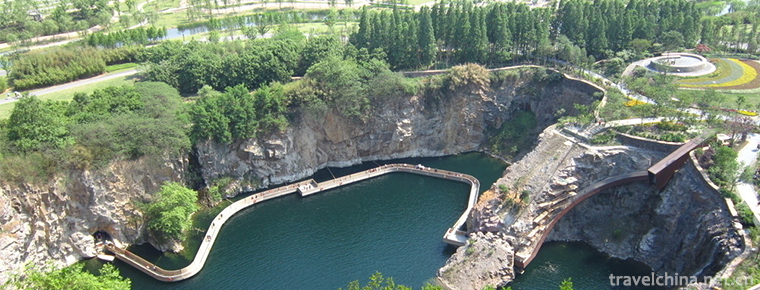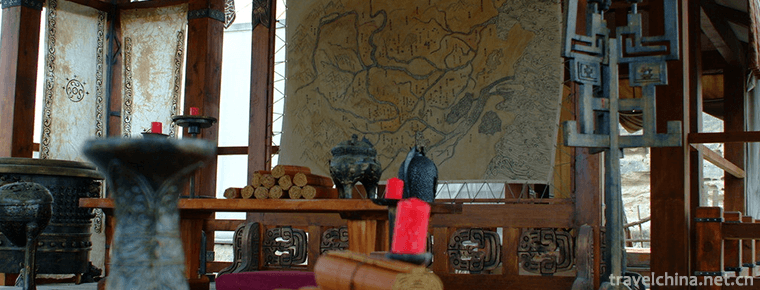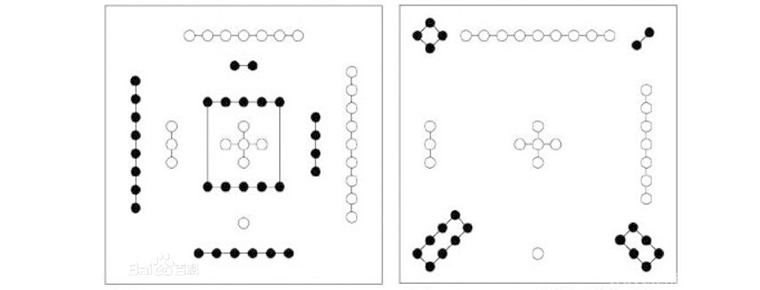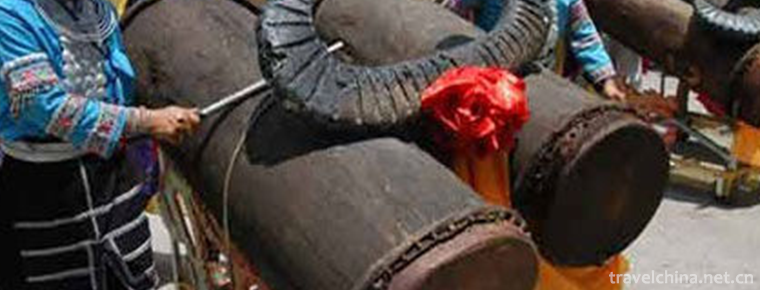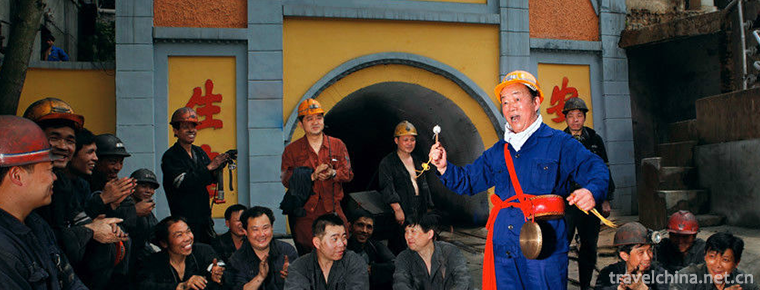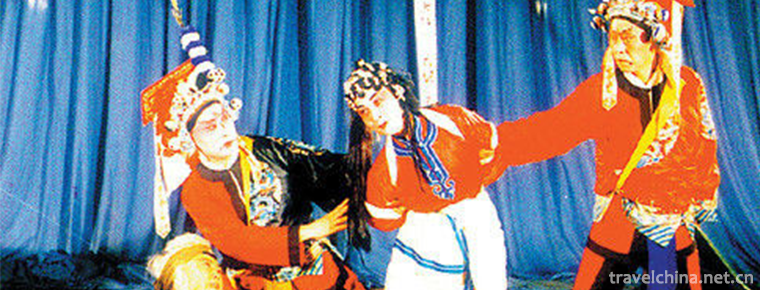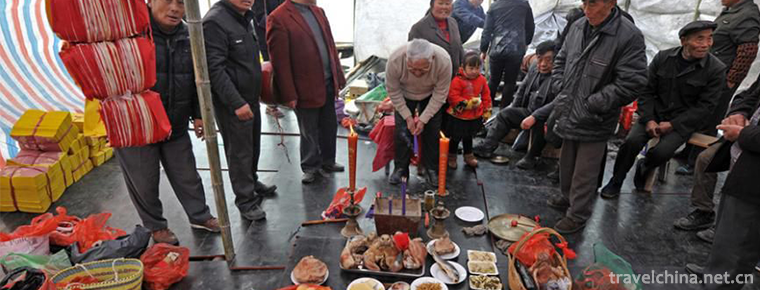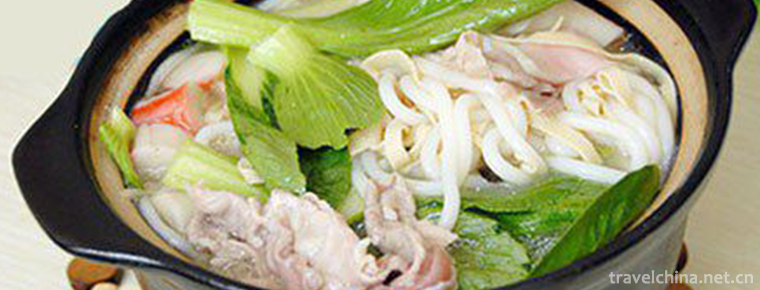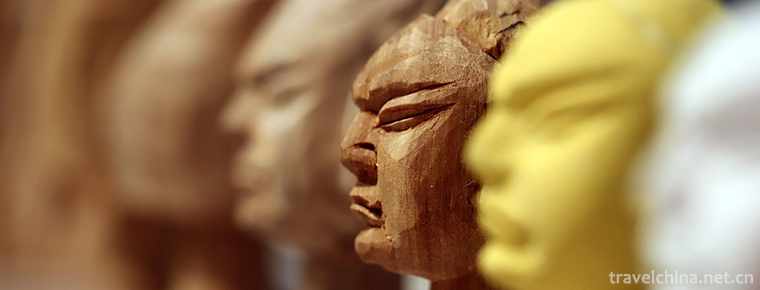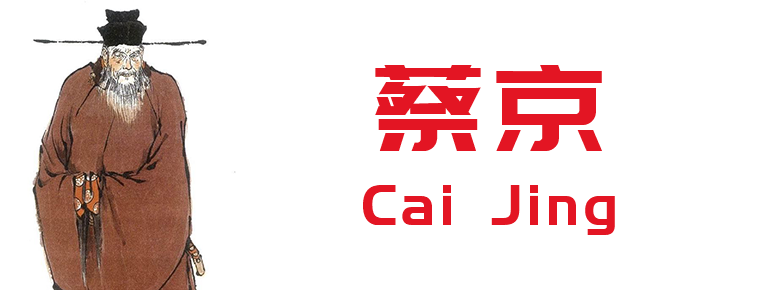Beijing Union University
Beijing Union University
Beijing Union University was founded in 1985 by the Ministry of education. It is a comprehensive university in Beijing. Its predecessor was the 36 University branches in Beijing in 1978. After more than 30 years of construction and development, the comprehensive strength of the school has been significantly enhanced. It has formed a complete talent training system which is supported and coordinated by 10 disciplines, namely, classics, law, education, literature, history, science, engineering, medicine, management and art. It is a complete talent training system based on undergraduate education, postgraduate education, higher vocational education, continuing education and international student education. It is a training base for Applied Talents in Beijing. It is also one of the largest universities in Beijing.
The school implements the strategy of "academic establishment, talent training, and opening up schools", constantly promoting connotative development, and striving to build a high level, distinctive city and applied university with Beijing people's satisfaction. The school is responsible for training high-quality applied talents who are suited to the needs of the country, especially the capital's economic and social development. Since its foundation, it has trained more than 20 graduates for the country. They are active in all walks of life in the national economic and social development. Many graduates have become leaders and business backbone of government departments and large enterprises.
The main campus of the school (North Fourth Ring campus) is adjacent to the Olympic central area. There are also 7 sub campuses scattered in running schools, covering an area of 600 mu and a building area of 50 million square meters. There are nearly 2 million 750 thousand books in the library, nearly 1600 full-time teachers, and 2 redundant students in full-time schools, including 19 thousand undergraduates, more than 800 vocational college students, more than 400 graduate students, and more than 1100 overseas students. There are also nearly 5000 adult education students.
The school now has 15 colleges, including applied arts and Sciences, teachers' College, business school, biochemical engineering college, tourism college, continuing education college, smart city college, Robotics Institute, urban rail transit and Logistics College, management college, special education college, art college, applied science and Technology College, Marx school, International Exchange College and so on.
[discipline and system of coordinated development]
Schools actively adapt to the needs of national and capital economic construction and social development, continue to integrate and optimize the structure of disciplines and specialties, and consolidate disciplines and specialties, thus initially forming a discipline and professional system with structural optimization, rational layout, obvious application characteristics and coordinated development of multiple disciplines.
The school has 64 undergraduate specialties, involving 10 universities, including economics, law, pedagogy, literature, history, science, engineering, management, art, medicine and so on. The 5 undergraduate specialty is the national characteristic specialty construction point, and the 7 undergraduate specialty is the characteristic specialty construction point of Beijing municipal level. The 1 specialties were approved by the national level undergraduate comprehensive reform pilot program, and 3 specialties were approved by the Beijing municipal undergraduate comprehensive reform pilot program, and 2 specialties were awarded the first batch of first class majors in Beijing municipal universities. It provides a wide space for candidates to choose professionally.
The school has 9 academic master degree empowerment disciplines including archeology, software engineering, computer science and technology, food science and engineering, business administration, Chinese history, geography, design, and Marx doctrine. It has 11 professional master degree authorization categories including finance, law, education, Chinese medicine, transportation, transportation, news and communication, cultural relics and museums, accounting, library and information, tourism management, and two independent disciplines 12. Among them, the field of Vocational and technical education is the pilot field of master of education degree Office of the Ministry of education. Economic law, computer application technology, food science, special education, human geography and tourism management are the 6 major disciplines of Beijing, including 10 key disciplines and 21 key disciplines.
Teaching and research in harmony
The aim of the school is to train high-quality applied talents with a certain international vision, strong adaptability and sustainable development ability, with the aim of cultivating basic quality, practical ability, innovative and entrepreneurial spirit and social responsibility, and deepening the reform of education and teaching on the basis of quality engineering projects. In recent years, schools have approved 5 state-level specialty construction courses, 4 state-level quality courses, 2 state-level boutique resources sharing courses, 2 state-level open video courses, 9 national quality teaching materials, 15 kinds of national higher education undergraduate teaching materials in 12th Five-Year, 1 state-level personnel training mode innovation experimentation area, 2 state-level experimental teaching demonstration centers, 1 state-level virtual experimental teaching centers, 1 state-level practice education bases, and 1 national teaching teams, and have achieved a large number of landmark Beijing municipal quality engineering projects. In addition, the school has won over 40 outstanding teaching achievement awards at the municipal level and national level in Beijing, and has undertaken nearly 40 projects in the national education science program and the Beijing Municipal Education Commission's education and teaching reform project.
For many years, the school has persisted in carrying out scientific research for the purpose of emphasizing application research, promoting discipline development, insisting on scientific and technological innovation and serving the capital construction. It has 1 key national scientific research platforms, namely, the National Key Laboratory of intelligent tourism, 8 Beijing municipal scientific research platforms, the Key Laboratory of biological activity and function food, Beijing research base, Beijing Key Laboratory of information service engineering, Beijing Taiwan cultural exchange research center, Beijing Key Laboratory of biomass waste utilization, Beijing intelligent mechanical innovation design service engineering technology research center, Beijing city political civilization construction research base and Beijing tourism informatization collaborative innovation center. It has 2 academician workstations of Li Deyi and Zhou Chenghu, and 2 2 post doctoral research workstations. The school also has 37 research institutes, including the Food Science Research Institute, the Taiwan Research Institute, the people's Congress System Research Institute and so on. Since 2010, the school has undertaken more than 1400 scientific research projects and projects at all levels. The annual funding for research is ranked among the leading universities in Beijing. The journal sponsored by Beijing Union University and Journal of tourism have an important influence both at home and abroad. The Journal of Beijing Union University (HUMANITIES AND SOCIAL SCIENCES) has been selected as the source of Chinese Social Sciences Citation Index (CSSCI) for 7 consecutive years. Tourism journal has been selected as "China's most influential International Academic Journal" for 6 consecutive years. In 2014, it was selected as an authoritative journal of Humanities and Social Sciences in China.
Rich and high-quality educational and teaching resources]
Beijing Union University has a relatively strong faculty, with nearly 1600 full-time teachers. Among them, 833 senior professional titles are serving as the 17 directors of the new Ministry of education, the steering committee of the Ministry of education and the directors, deputy directors and members of the industry Steering Committee. There are 1 national excellent teachers, 1 new century talents, 15 Beijing municipal special professors, 10 Beijing the Great Wall scholars, 18 municipal teaching masters, 13 top notch innovative talents at the municipal level, 54 urban top youth talents, and 192 junior middle school backbone teachers at the municipal level. There are 1 teachers who won the title of outstanding teacher in Beijing Meng Er Dong style. There are 1 national teaching teams and 8 teaching teams in Beijing. At present, the school has formed a comprehensive, reasonable, high-quality, competent and highly skilled Faculty of age, education and title.
The teaching community of universities in Xueyuan Road is composed of 19 institutions including Beihang University, Beijing Normal University, University of Science and Technology Beijing and Beijing Union University. As the governing body and member school of the Xueyuan Road teaching community, the students in our university can take other courses in other disciplines such as literature, art, sports, medicine, natural science and other disciplines in the intercollegiate schools. Minor majors in other member schools are riched in professional qualifications and receive minor certificates. They enjoy a wealth of quality teaching resources, appreciate different campus cultures, broaden their horizons and knowledge, improve their overall quality, and enhance their entrepreneurial competitiveness and social adaptability.
Beijing's high-quality educational resources are gathered and the level of internationalization is ahead of the country. Fully utilizing the geopolitical advantages of Beijing, schools take advantage of the interdisciplinary visits, famous lecturing teachers, visiting professors and other ways to actively introduce high-quality educational and teaching resources in and out of the institutions of higher learning, providing students with an international education platform, striving to achieve effective enrollment of quality education at home and abroad, and devotes themselves to cultivating high-quality applied talents with international vision.
[perfect student growth mechanism]
In order to meet the needs of students' individualized development and promote their growth and development, the school actively builds up a system of perfect student growth and talent: actively promoting the reform of the credit system reform; trying out dual degree, second professional and minor professional system, major and minor (secondary) repair system, dual degree system, transfer professional system, and school level experimental class, etc., to provide diversified growth and success channels for students at different levels.
Relying on the national and Beijing personnel training mode innovation experimentation area, the school set up three school level experimental classes, including software engineering, finance and tourism management personnel training, to carry out targeted and innovative education for outstanding talents. The experimental class is staffed with excellent teachers. The famous professors and famous enterprises are invited to serve as two tutors. Teachers from outside and inside schools are invited to serve as the teachers of the course. The proportion of teachers in the municipal level is not less than 50%. The students in the experimental class enjoy various preferential policies: those who have outstanding achievements will enjoy priority in participating in Sino foreign cooperative education projects, and the proportion of the students sent abroad for study or communication should not be less than 50%; a special self-study classroom with good environment; a separate scholarship and technical practice and venture fund; and a special fund set up to support the teaching reform and construction of the experimental class.
[international exchanges and cooperation in various forms]
Actively promoting internationalization is one of the major development strategies of schools. Schools focus on enriching the learning experience of students abroad through various forms, and strive to create an international learning atmosphere, so as to foster students' international awareness, broaden students' international vision, enhance students' cross-country understanding and communication skills across different countries, and enhance their competitiveness in the future world city construction.
The school actively develops international and overseas cooperation in running schools and fostering talents with international competitiveness. The school has established inter school cooperation and exchanges with 139 institutions in more than 30 countries and regions in the Americas, Europe, Oceania and Asia. Such as: 3+1, 4+1 project and 3+1+1 master's cooperation project with University of Westminster, Anglia Rosaline University and Rohan Hampton University; a program of student exchange and master's degree was carried out with the University of empoliya State University; exchange programs with students from Niigata University, Korea National University and Seoul Municipal University were carried out, and "special class" and semester exchange projects were carried out with a dozen Taiwan colleges and universities in Taiwan Chaoyang University of science and technology. The school attached importance to strengthening cooperation with the countries along the belt. In 2016, it was approved by the Ministry of education and launched a Sino foreign cooperative education project with the Ural National Chiao Tung University, Russia. The Beijing center, the Russian language grading examination center and the Russian Center were jointly organized with Moscow State University to train Russian compound talents. Students participating in all kinds of cooperation and exchange programs enjoy different preferential policies in terms of tuition fees and accommodation. Schools specially set up students' scholarships to encourage students to actively participate in cooperative projects. The number of students participating in cooperation and exchange projects has increased year by year, and 12% of the students currently have overseas learning experience.
The school has actively introduced advanced educational resources and advanced international education and teaching experience and practices in foreign cooperative colleges, and implemented effective integration of educational internationalization and educational localization. Bilingual or English teaching has been carried out by employing foreign teaching experts and local excellent bilingual teachers, so that students can receive advanced international education in schools. The international education of schools has attracted students from all over the world, and more than 1500 students from more than 50 countries are studying in our school every year. Here, students will feel the international atmosphere on campus and feel the exotic culture from their surroundings.
Schools carry out academic exchanges through visits, forums, seminars and other forms to promote the internationalization of schools. In recent years, the school successfully held the first "one area and one way" foreign related legal service forum, the 2017 Open Innovation Forum (China Japan special session), the Sino US international seminar, the Beijing international special education scholar forum, the International Vocational Education Forum and the local university international development strategy International Symposium, and jointly organized the Cross-Strait Academic Seminar on Higher Education (technical and vocational) with the Taipei Polytechnic University and many other Taiwan colleges and universities, which had a great impact on the educational circles at home and abroad.
[innovation and development of higher vocational education]
Relying on the educational resources of applied education, the school innovates the development of higher vocational education, and basically forms the pattern of vocational education with the training of specialized subject, undergraduate course and master's degree. There are 2 master's degree enrollment qualifications in the mobile commerce interdisciplinary field and the vocational and technical education field, and 29 undergraduate majors undertake the training task of higher vocational college graduates who are facing the independent higher vocational colleges in Beijing independently, and 9 specialties recruit students. During the "12th Five-Year" period, schools continued to strive for pioneers and leaders in the theory and practice of vocational education personnel training. As a pilot project of the Beijing municipal government's comprehensive reform of education and Planning - the grading reform of Vocational Education in Beijing, the grading reform of Vocational Education in our school has created a large number of symbolic results, resulting in tremendous social impact. In 2014, the research achievements of linking up the middle and high schools and linking up the higher vocational colleges and the higher vocational colleges were awarded the one or two prize of the national teaching achievement.
Talent cultivation mode with equal emphasis on knowledge and Practice
The school attaches great importance to the cultivation of students' practice and innovation ability, and constantly strengthens the construction of the hardware and software environment of practical teaching, creating favorable conditions for the cultivation of high-quality applied talents. The school has built 2 state-level experimental teaching demonstration centers, 1 state-level virtual experimental teaching demonstration centers, 2 municipal experimental teaching centers, and 13 practical teaching centers at the school level. The school attaches great importance to the cooperative education of industry, University and research. It has established close cooperation with German SIEMENS, LC, China Railway, electrified railway group, China Railway, Beijing metro, Beijing Gong Mei Group, Pacific Insurance Company, Quanjude Restaurant Group and other well-known enterprises at home and abroad. The extracurricular personnel training base such as the first brigade group, the capital museum, the Beijing archives and the Beijing holding group has been selected as the Beijing city's off campus personnel training base. Among them, the first brigade group's off campus practice education base has been evaluated the national university student outside the school practice education base. IBM, Jinyu group and many other enterprises set up scholarships in schools. Schools attach importance to the implementation of double certificate education, encourage students through various policies and systems, take part in more than 20 examinations of authoritative technology grade certificates at home and abroad, and obtain various vocational qualification certificates or technical grade certificates.
The school has also actively set up a practical platform for Discipline competitions and students' scientific and technological activities, and has set up a four level discipline competition system for hospitals, schools, cities and nations. To undertake the computer application competition of Beijing university students, and expand the computer application competition to five provinces (cities and autonomous regions) and Hong Kong, Macao and Taiwan Universities in North China. In the National Mathematical Contest in modeling, the National Undergraduate Electronic Design Contest, the American Undergraduate Mathematical Contest in modeling, the national vocational college skills competition, and the "Higher Education Society" cup oral English contest and other well-known competitions have achieved excellent results. Schools encourage students to take part in scientific and technological innovation activities such as academic competitions through credit incentives and other incentive policies, so as to cultivate students' innovative and practical ability and achieve fruitful results. More than 300 provincial and ministerial level scientific and technological competitions have been awarded. Among them, 1 have been awarded the "Challenge Cup" science and technology competition for university students in Beijing, and 3 in the National University (Wen Ke) computer design contest, the two prize in China. The student art troupe won 22 awards for provincial and ministerial level competitions. Among them, the orchestra and dance troupe were awarded the first prize of the second national university art exhibition.
Our school is the first batch of pilot schools approved by Beijing to build high-level sports teams. Over the past five years, more than 40 national athletes have been trained. Our Aerobics athletes won 3 Championships at the World University Games. 5 times, they won the first place in the total score of the Chinese college students' health and vitality competition held by the Ministry of education. In 2014, the National Aerobics Championships won 2 Championships. In 2015, the National Aerobics Championships won 2 Championships. In 2016, the national university student vigor and health competition 2 champion. In addition, our school students also won 3 gold, 1 silver and 2 bronze scores for the Chinese delegation in London and Rio Paralympics.
(above statistics up to September 30, 2018)



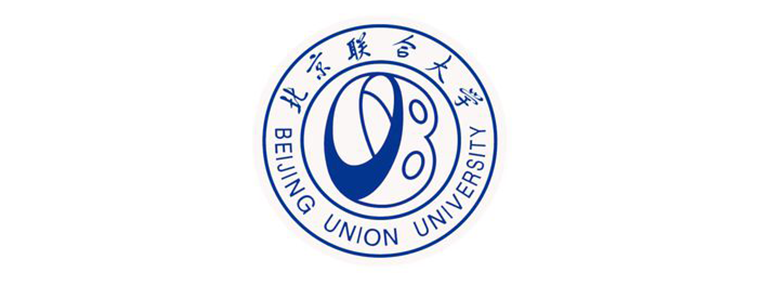
-
Shanghai Chen Shan Botanical Garden
Shanghai Chenshan Botanical Garden is located at 3888 Chenhua Highway, Songjiang District, Shanghai. It was opened to the public on January 23, 2011. It was built by Shanghai Municipal Government in c.
Views: 147 Time 2018-12-19 -
Niulang and Zhinu Scenic Spot
Niulang Zhinu Scenic Area is located in Yanya Town, southeast of Yiyuan County, Shandong Province, 15 kilometers away from the county town. The scenic area is mainly composed of Daxianshan Mountain.
Views: 387 Time 2019-02-07 -
Legend of Hetuluo Books
The legend of Hetu Luoshu is a folklore system about Hetu and Luoshu, which was born in Luoyang, Henan Province. It mainly includes the legend of Longma Negative Tu Temple and the offering of Luoshu b.
Views: 173 Time 2019-05-03 -
Wooden drum dance
Wood drum dance is a kind of folk dance that is spread among the Miao, Yi and Wa people in southwest China to dance and sacrifice by beating wood drum. Its drum shape is mostly to intercept the trunk .
Views: 199 Time 2019-06-06 -
Pingxiang spring Gong
Pingxiang Spring Gong is a traditional form of music evolved from Primula in Pingxiang, Jiangxi Province. It is widely spread in Pingxiang City and its surrounding areas. It uses Pingxiang dialect and.
Views: 144 Time 2019-06-09 -
Qingyang Opera
During Jiajing period of Ming Dynasty, Yiyang Tune of Jiangxi flowed into Qingyang County of Chizhou Prefecture in Southern Anhui Province. It was combined with local language, folk opera (Kunshan Tun.
Views: 148 Time 2019-06-11 -
Netboat Club
Netboat Club is an ancient traditional folk custom and folk religious and cultural activities. During the period of the Republic of China, around the Qingming Festival and the Mid-Autumn Festival, ten.
Views: 414 Time 2019-06-26 -
Uygur Dastan
Uygur Dastan is a kind of Uygur singing and playing music. It is a kind of long narrative poem with rap and singing. It is a long poem with complete stories and characters. It is a folk art form with .
Views: 137 Time 2019-06-26 -
Yunnan Mengzi Crossing Bridge Rice noodles guo qiao mi xian
"Crossing bridge rice noodles" is a unique food in southern Yunnan. It originated in Mengzi City, Hani and Yi Autonomous Prefecture of Honghe. It has a history of more than 100 years. It wa.
Views: 224 Time 2019-07-16 -
Zhangzhou Puppet Head Sculpture
Zhangzhou puppet head carving is a traditional folk arts and crafts in Zhangzhou City, Fujian Province. It belongs to a special skill in the production of puppet stage props. Zhangzhou puppet head car.
Views: 125 Time 2019-07-25 -
Cai Jing
Cai Jing (February 14, 1047 - August 11, 1126), character length, Northern Song Dynasty Prime Minister , calligrapher, Xinghua Army Xianyou County cixiao Li Chi Ling (Xianyou County, Putian City, Fuji.
Views: 181 Time 2019-09-14

